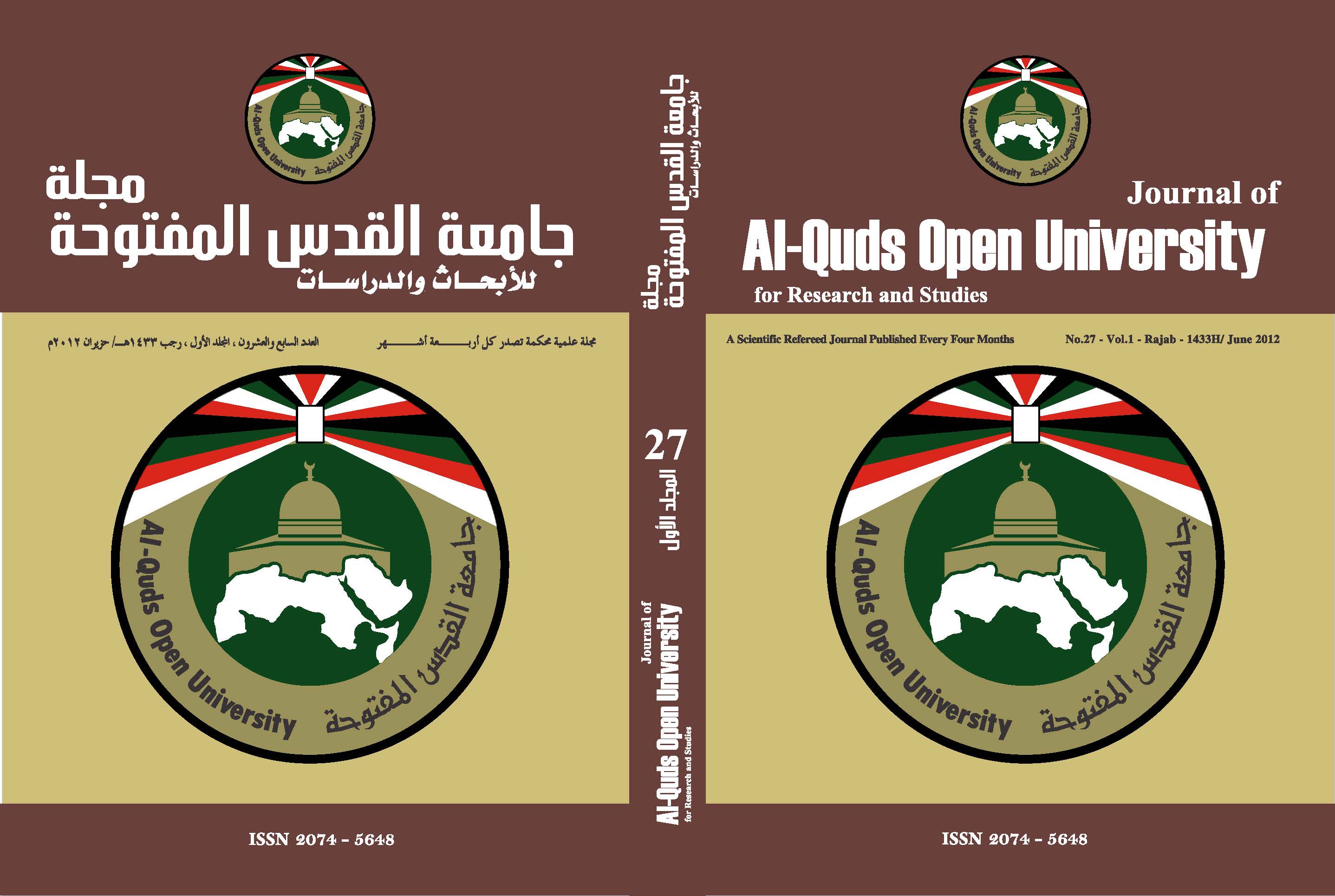The Effect of Holistic Intervention based on the Mutual Support Approach “From a Bereaved Woman to Another”
Keywords:
loss, social support, "from a bereaved woman to another" approach, Holistic Intervention, Mutual Support ApproachAbstract
The current study aimed to describe and understand the effects of holistic
intervention, based on the mutual support approach “from a bereaved woman
to another”. The quantitative method has been utilized to form an integrated
description, analysis and explanation of the experience’s consequences, that
has been analyzed through using arithmetic mean and standard deviation
measures, and by using the Paired Samples T-Test and One Way ANOVA,
followed by using Scheffe test.
The results of the study have revealed that there are concrete changes in
women’s attitudes in terms of intra communication and inter communication
patterns comparing before and after support’s experience. Such outcome may
reflect the fact that loss is a personal crisis, first and collective, second. It also
reflects that it strongly affects the communication of the individual with self
and then with others.
Results showed that there has been no effect, as regards to type of
loss, age, social status and education, on the bereaved women’s attitudes in
communication patterns; whilst the statistical analysis revealed differences in
two variables: residential area and type of bereaved women. The statistical
analysis revealed that there have been essential changes in bereaved women’s
attitudes towards loss-related disorders and towards the support experience.
It confirmed that support process affects dealing with loss-related disorders.
This current study has importantly concluded that the holistic, mutual
support approach, based on the concept of bereaved woman-to-bereaved
woman, has proved effective and promising as regards the alleviation of the
intensity of the direct bereaved disorders.
The study concluded that there is a need to develop this approach and
provide it with societal and political legitimacy.
Downloads
Published
How to Cite
Issue
Section
License
- The editorial board confirms its commitment to the intellectual property rights
- Researchers also have to commit to the intellectual property rights.
- The research copyrights and publication are owned by the Journal once the researcher is notified about the approval of the paper. The scientific materials published or approved for publishing in the Journal should not be republished unless a written acknowledgment is obtained by the Deanship of Scientific Research.
- Research papers should not be published or republished unless a written acknowledgement is obtained from the Deanship of Scientific Research.
- The researcher has the right to accredit the research to himself, and to place his name on all the copies, editions and volumes published.
- The author has the right to request the accreditation of the published papers to himself.













_2.png)
_.png)
_2.png)
_1.png)
_.png)

